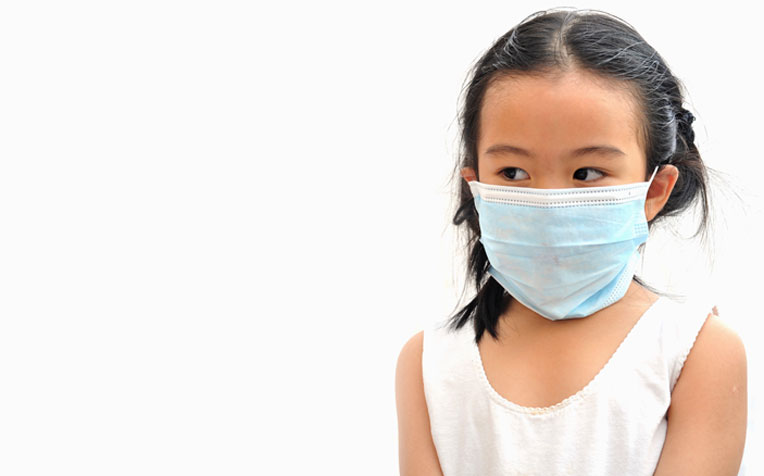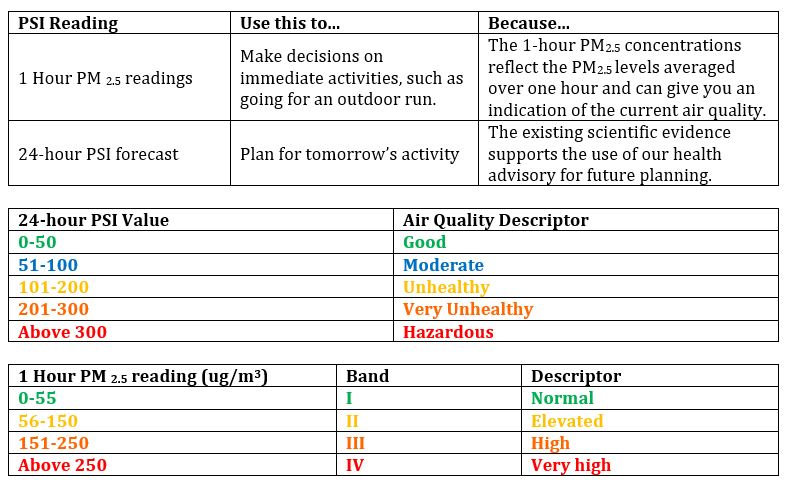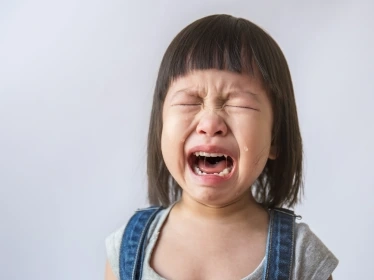
Singapore experiences haze from time to time, usually caused by forest fires in the region. This is most likely to occur during dry weather conditions from June to October and when the Southwest monsoon winds blow the smoke in the direction of Singapore.
What is Haze?
Haze is a phenomenon in which dust, smoke and other suspended fine particulate matter obscure the clarity of sky giving a misty or foggy appearance.
What are the health effects of haze in children?
The health impact of haze is dependent on one’s health status (e.g. whether one has pre-existing chronic heart or lung disease), the Pollutants Standards Index (PSI) level, and the duration and intensity of outdoor activity.
For healthy individuals, short-term exposure to haze will generally not cause any major health issues, other than irritation of the eyes, nose, and throat. During periods of haze, young children are at higher risk of developing symptoms because of their developing lungs and immature immune system.
Short term exposure to haze conditions (e.g. hours or a few days) may result in the following symptoms:
- Itchy, watery or red eyes
- Runny nose
- Blocked nose
- Sneezing
- Dry/Sore throat
- Dry irritant cough
- Breathing difficulties
- Reduced tolerance to exercise
Children with a pre-existing medical condition such as asthma, allergic rhinitis and allergic conjunctivitis, hypertension and heart disease may experience a flare of their medical condition. Children with asthma may suffer an asthma attack that requires emergency medical attention or hospitalisation or children with hypertension may experience a sudden rise in blood pressure.
Prolonged exposure to haze conditions (e.g. over months to years) especially in very young children has been linked to increased risk of lung disease such as reduced lung development, reduced lung function and chronic lung conditions e.g. bronchial asthma; neurobehavioral problems such as reduced cognitive abilities or ADHD; as well as increased cardiovascular, metabolic and CNS disease e.g. heart disease, diabetes, stroke, dementia.
What precautions do we need to take during the haze?
The National Environment Agency (NEA) publishes two types of readings:

- Minimise prolonged or strenuous outdoor activities at PSI levels above 100.
- Minimise outdoor activities if PSI levels reach higher than 200.
- Avoid all outdoor activities if PSI levels reach higher than 300.
- Keep doors and windows closed at home when the PSI levels are high.
- Portable air purifiers can be used to further reduce the indoor particle level.
- If using an air conditioner, clean the filters regularly and ensure that they are in good working order.
- Ensure children drink plenty of fluids and stay well hydrated
- Ensure children eat a well balance diet including foods high in antioxidants, fruits and vegetables
There may be a lag time of up to three days between exposure to haze and acute health effects. Most of the symptoms experienced are transient and self-limiting. When in doubt, consult the doctor for advice.
Children with pre-existing medical conditions:
- Should continue using their regular medications as prescribed
- Children with asthma should step up their medications according to their written asthma action plan if the PSI is high (>100) or if they experience asthma symptoms.
- Should see a doctor immediately if they become unwell or experience worsening of their symptoms.
Are N95 masks suitable for use on children during the haze?
N95 masks when fitted properly are used to protect the user from inhalation of fine particulate matter (PM2.5) which is the predominant cause of the ill health effects of haze. Most of the available
N95 masks may not fit well on the face of a younger child so these may not be as effective as when used in older children and adults. N95 masks need not be used indoors or for short exposures e.g. commute from home to school and in an enclosed vehicle
The use of N95 masks increases effort of breathing and reduces air intake. Take a break from using it if your child feels uncomfortable. Consult a doctor if you’re unsure whether your child should use one.
Surgical masks do not offer adequate protection from the harmful fine particulate matter present in the haze but may reduce the discomfort caused by haze by filtering out the larger irritant particles in the air.
Useful Links
You can get live updates on PSI readings on:
- NEA’s myENV app (available for download for iPhone and Android)
- NEA’s corporate website




